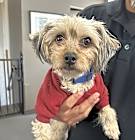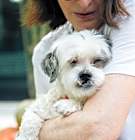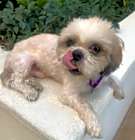No, Shih Tzus are not considered a low-maintenance dog, but they’re not extremely high-maintenance, either. Shih Tzus generally require moderate maintenance due to their long coats, which need regular grooming and brushing to avoid tangles and matting. While they may need a fair amount of care in terms of grooming, they adapt well to apartment living, making them easy to manage in other aspects.

$350 in savings for new adopters
PetSmart is offering new adopters a free adoption kit. Just show your adoption paperwork in-store to redeem!
PetSmart is offering new adopters a free adoption kit. Just show your adoption paperwork in-store to redeem!
Shop Now

Shop Now















